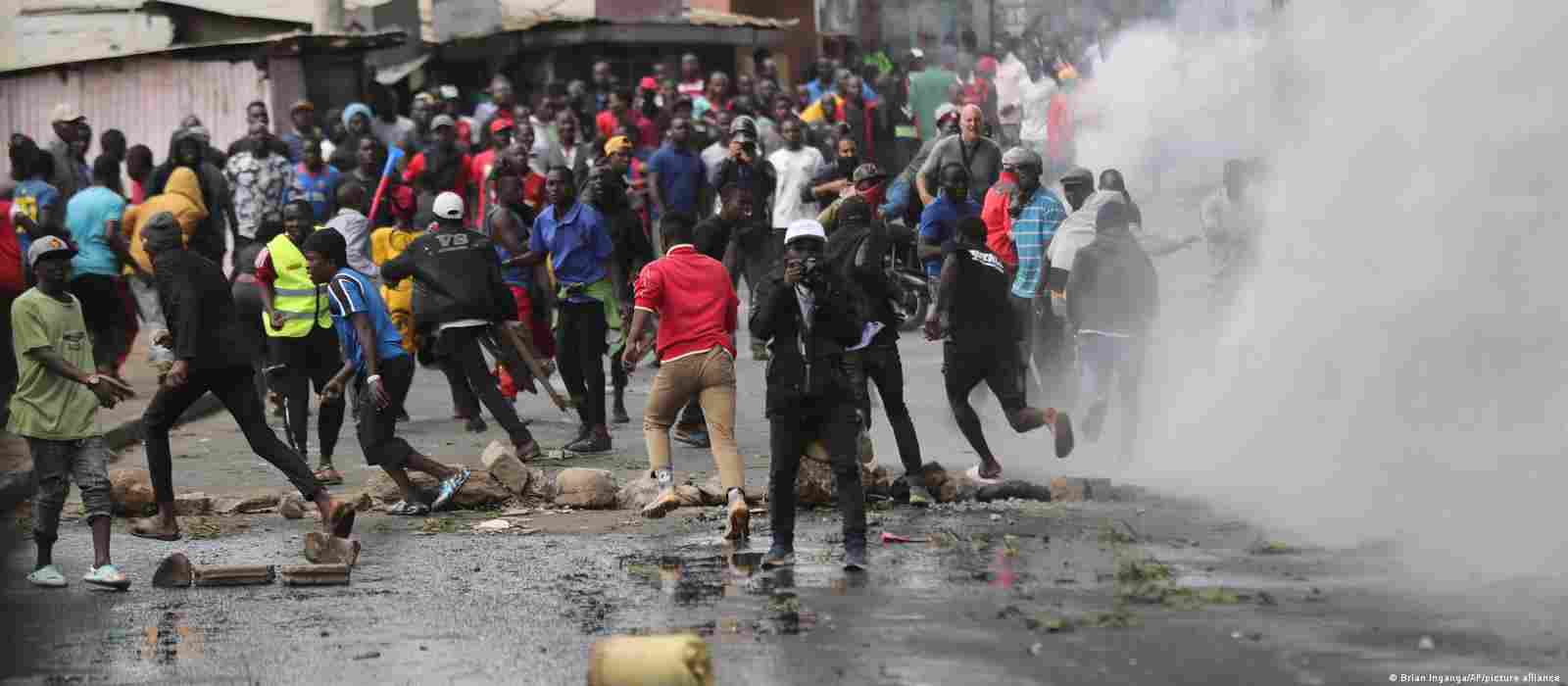Kenyan law enforcement officials dispersed thousands of demonstrators who took to the streets of Nairobi on Monday to protest against the government’s rising cost of living. Despite the government’s prohibition on rallies in the capital, the demonstrators refused to back down.
The police officers utilized water cannons and tear gas to disperse the crowd, resulting in a fatality in the city of Kisumu, bringing the death toll to two since the protests began last week. The protests were sparked by the government’s decision to raise fuel prices, which has resulted in a significant increase in the cost of living for Kenyans.
Raila Odinga, the opposition leader, joined the demonstrators on the western side of the city, causing thousands of his followers to gather. He spoke to them at several points, demanding electoral fairness and lower prices for foodstuffs. “We cannot continue living like this, where the cost of living is skyrocketing and the government is not doing anything about it,” he said.
Chief Japheth Koome of the police department has declared the protests unlawful, but Raila Odinga believes that Kenyans have the right to protest. “We have the constitutional right to demonstrate peacefully, and we will not be silenced,” he said. Odinga, who leads the Azimio la Umoja-One Kenya Coalition, is at the forefront of the protests against the rising cost of living and is demanding the resignation of President William Ruto, arguing that his election in the recent polls was not legitimate.
Despite the court’s dismissal of Odinga’s lawsuit against the results of last year’s presidential election, he maintains that the voting was plagued by fraud. He has encouraged his supporters to demonstrate on Mondays and Thursdays.
Deputy President Rigathi Gachagua, who posted pictures of himself in his office, urged Kenyans to show up to work. Meanwhile, President William Ruto was away on a visit to Germany.
Although the central business district of Nairobi was peaceful on Monday morning, most businesses had shut their doors due to the apprehension of potential demonstrations. The protests have disrupted normal business activities in the capital and other parts of the country, and there are concerns that the situation could escalate into violence.
In addition, reports emerged of violence targeting Odinga and his supporters. The former president of Kenya, Uhuru Kenyatta, had his family’s farm raided on the outskirts of the capital, with trees cut down and sheep taken away. Local media reported that this was in relation to the 2022 elections, in which Kenyatta supported Odinga. Moreover, rocks were thrown at Odinga’s gas cylinder manufacturing enterprise, which is located near the downtown area.
The ongoing protests reflect the growing frustration of Kenyans over the high cost of living, as well as the political instability in the country. The government has been accused of failing to address the concerns of its citizens and failing to deliver on its promises. Many in Kenya are struggling to make ends meet, and the recent increase in fuel prices has only made matters worse.
The situation is being closely monitored by international observers, who are calling on the Kenyan government to respect the rights of its citizens and ensure that the protests remain peaceful. The United States and the European Union have both issued statements condemning the use of violence against peaceful protesters.
The ongoing protests in Kenya have caused concern for the government, which has accused the opposition of inciting violence and destabilizing the country. The government has made it clear that it will not tolerate any illegal activities and has ordered the police to crack down on any attempts to disrupt public order. In a statement released by the government, officials emphasized their commitment to ensuring the safety and security of all citizens, as well as protecting private property and public infrastructure.
Image Credit: Ben Curtis/AP/picture alliance





